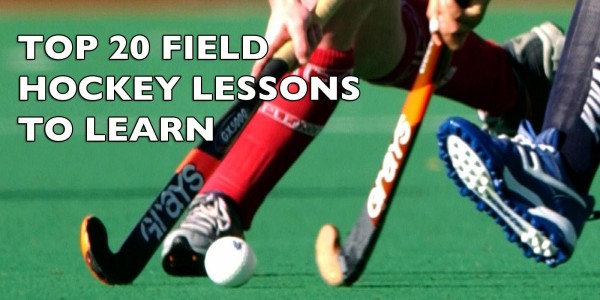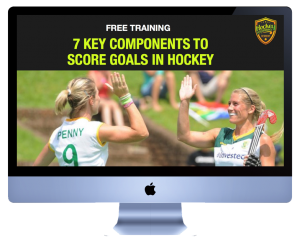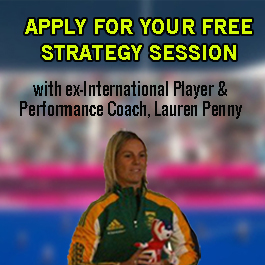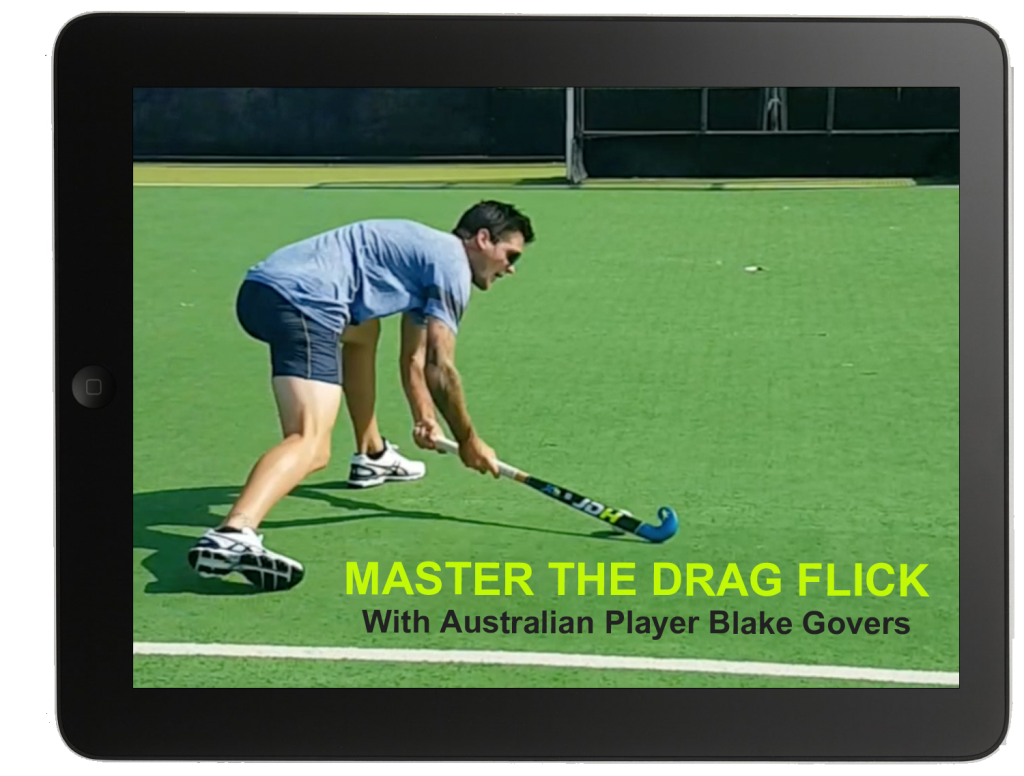A lot of hockey players just turn up to training and games and don’t give a lot of thought to how they can get more out of their hockey and reach levels they probably haven’t even imagined.
I setup the Hockey Performance Academy (HPA) to help sports people, specifically hockey players to realise that there is so much more to sport than just practicing skills and playing games. There are so many important lessons that we can learn from sport, that stretch across every aspect of our lives.
It is often difficult to explain to people how much they can get out of our hockey training programs because there are so many benefits for different people which is why I like to let the HPA members do the talking; see exactly what others think by clicking here
In this article, I have used surveyed responses from past HPA members from their experience on the Mentorship Program below… Each member was asked what their key take-away lessons were and where they have seen the biggest improvement since joining the Mentorship Program
Top 20 Field Hockey Lessons:
#1. How to be more confident
Probably the MOST important factor for success in sport and in life is: Confidence! A lot of players doubt whether they are good enough and lack confidence in their ability which holds them back massively. We provide members with many specific tools, exercises and strategies which teach players how to build their confidence. Every single HPA member has noticed an increase in their confidence since joining the program which they report has given them the best chance of achieving success.
#2. What the mind is capable of
One of the most important lessons in the Mentorship Program is teaching players that they can do anything that they put their mind to. You will learn how the mind works and how to use your powerful brain 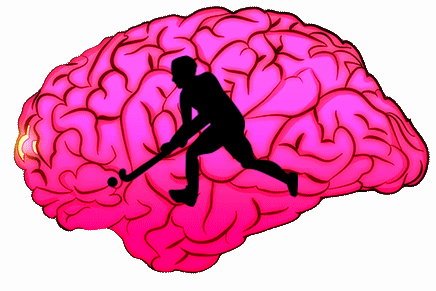 to your advantage. As humans we naturally undermine ourselves and we often put barriers and limits on what we think we can achieve. My main objective in life is to empower people to achieve great things beyond what they believe themselves.
to your advantage. As humans we naturally undermine ourselves and we often put barriers and limits on what we think we can achieve. My main objective in life is to empower people to achieve great things beyond what they believe themselves.
As they say: “It’s all in the mind”
#3. Understand exactly how to plan & achieve goals
According to studies only 3% of people achieve their goals. Why? Because most don’t know how to set goals effectively and they don’t have the right mindset to follow through on them. Every H.P.A member has had an amazing transformational shift within weeks of working with me because I take them through a process of how to do this properly. I help them to find that deep down unconscious motivation using a rigorous questioning process that drives them to work harder than anyone else. This is exactly what you need if you want to achieve any goals that you set yourself (in sport or in life).
#4. Dealing with pressure
Many hockey players wonder why they lack consistency, sometimes feel nervous and don’t play their best particularly in the big games or at trials, when it’s most important. The difference is the ability to play under pressure. If you don’t feel pressure then chances are you are playing at a level that you are comfortable with and aren’t pushing yourself out of your comfort zone. The ability to handle pressure is a crucial lesson that you will need to learn if you want to reach the top of anything in life; whether it’s playing sport at a higher level, peer pressure, doing well in exams, interviews, presenting a board meeting, etc…
 #5. Make a bigger impact in games
#5. Make a bigger impact in games
If you want to have more of a presence, make a bigger impact in games, get noticed and be more involved in the outcome of your team’s performance then it is important that you develop the ability to stay focussed in the game. Part of this is being accountable for your own performance and not blaming other factors, but there are many different factors that I teach which will help you to have a greater presence in the game.
#6. How to prepare like an Olympic hockey player
Want to learn exactly how Olympic hockey players and top athletes prepare and what they do before they deliver their best performances? How better than to learn from someone who has played at the top level themselves? You don’t need to be a professional hockey player to see the benefits of what effective mental and physical preparation can do for you and your game. This lesson that I teach is a game changer for a lot of people.
Related post: 7 Mistakes Hockey Players Make Before They Even Start Playing
#7. Skills technique (video feedback)
Let’s face it – we all want great hockey skills! You can watch all the hockey video’s you want but what works for one person doesn’t necessarily work for another. Just look at the various techniques of top dragflickers as an example. Yes there are video tutorials in our program which will help you with skills technique but nothing can beat personalised advice to help you specifically with what YOU need to focus on, especially coming from a former international player & performance coach.
#8. Nutrition: What to eat, how much and when?
Most hockey players don’t realise the importance of nutrition and the effects it has on your energy levels and ultimately your performance. Nutrition can also affect your decision making and could leave you feeling fatigued before the game ends. Although we do provide a lot of cheat sheets and guidelines, we don’t believe in strict diets or  ‘generic plans’ so once again this is something which is personalised to suit each individual so that it is realistic and easy to stick to. We discuss all the details from correct portion sizes for you based on your age and the amount of activity you are doing, correct meal timings, understanding food labels, types of ingredients, effects of certain foods, etc…
‘generic plans’ so once again this is something which is personalised to suit each individual so that it is realistic and easy to stick to. We discuss all the details from correct portion sizes for you based on your age and the amount of activity you are doing, correct meal timings, understanding food labels, types of ingredients, effects of certain foods, etc…
#9. Exercises for better vision
There are professionals who specialise in improving vision in sport, but rather than you having to spend thousands on this we include this training in our program and provide members with specific exercises you can do to improve your vision on the hockey field. Most of our members “see” a change in their vision on the field within a few short weeks (excuse the pun) without having to spend hundreds of hours training.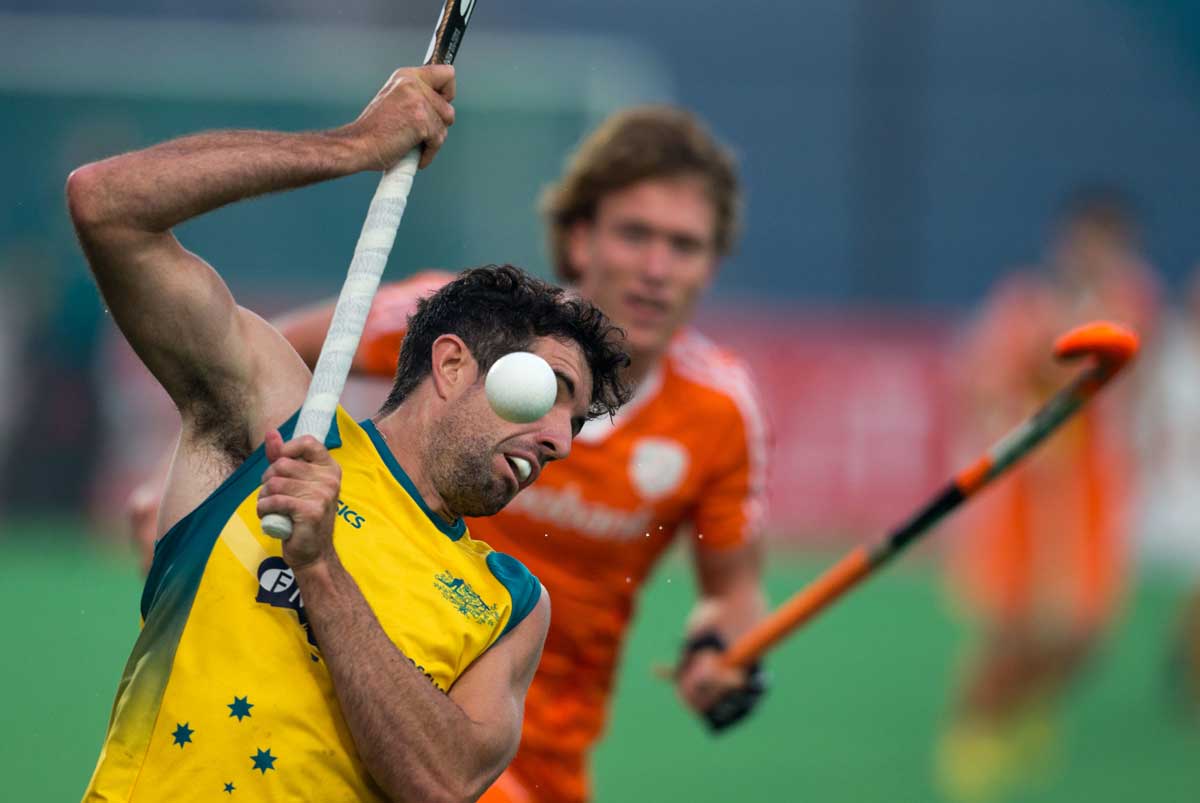
#10. Fitness movement & technique assessments
The benefits of strength, power, speed and agility training in hockey is huge, regardless of your age or your level. There is however a lot more to it than just choosing a few exercises to do. From my experience I see a lot of people that do the wrong things, which tend to cause more harm than good. This is either because they don’t follow a structured program, their program creates muscular imbalances (from poor program design), the exercises are not appropriate for the individual, their technique is incorrect or they are training the wrong muscle groups. Again, this is something which we assess personally by video to make sure that you are following the appropriate training for your needs and using the correct techniques which are most effective.
Related post: Hockey Players Should Train Their Core, Not Their Abs!
#11. 12 Month Hockey Specific Fitness plan
If you want to get the most out of your fitness then you MUST have a plan! Not just a one-off workout, but a structured step-by-step program that has been planned with various phases throughout the year. The majority of hockey players do not seek professional advice from a qualified expert who actually understands the demands of hockey. Most personal trainers are not qualified to design a hockey specific fitness program for you, they are trained to help people to lose weight or build muscle, which is very different to improving sport’s performance. Doing the wrong kind of training and not having a specific structure can lead to plateau’s (no longer seeing improvements) and injuries. Our Mentorship Program also includes a 16 week off-season program which gives HPA members a HUGE advantage.
#12. Better understanding of tactics and positioning 
Most players don’t really understand tactics or the correct positioning in different area’s of the field, often because we are too afraid to ask silly questions. On the Mentorship Program you will learn the why and how of various plays, formations, presses and about being in the right positions and making better decisions on the field. Understanding the tactical aspects of the game at a much deeper level will help you to be more confident with positioning, improved decision making and being in the right place at the right time.
#13. Recovery strategies and injury prevention
If you get injured you can’t play! As obvious as this sounds, too many people do not have any recovery and injury prevention strategies, instead they are just praying that they don’t get injured. The nature of hockey is intense and can be tough on the body so recovery and injury prevention is a critical element of staying off the sideline and maximising your performance. Assessing and correcting potential weak area’s and past injuries also plays a vital role in ensuring you recovery properly and don’t get repeated injuries.
#14. Better decision making
Do you ever get caught between when to pass and when to go yourself? We all want to make better decisions on the field and although no-one is perfect, we can all strive to improve and make better decisions more consistently. There are various aspects which affect decision making such as being in the right mental state, confidence, tactical positioning/understanding, vision, good level of fitness resulting in less fatigue, etc… This is a common improvement for a lot of HPA members who join our training programs.
#15. How to control emotions & get into the ideal mental state
If you have ever over-reacted or under-performed because of high emotions, whether in a state of frustration, anger or anxiety then you will find the training on controlling your emotions very useful. Often players either put too many high expectations upon themselves or they focus too much on what others are doing or saying and we lose control of our thoughts and emotions which hurts our performance. Getting into your ideal mental state, being in control of your emotions and staying focussed is very important if you want to excel in any field of life.
#16. Overcoming mistakes and setbacks
We all make mistakes (no-one is perfect) and we all have setbacks. It is not about not making mistakes but rather how you react and how quickly you can move forward and overcome your mistakes and setbacks. A lot of members have learn’t how to move forward from mistakes and setbacks and they understand how to change their perspective by using the many self-reflection tools and techniques that we provide them with.
Related post: How Mentally Tough Are You?
#17. Effective communication
One of the greatest skills you can have is the ability to communicate effectively with others and work as part of a team (both in sport and in life). Most arguments or problems come from mis-communication; think about a coach, team mate, friend or family member who said something that has affected your motivation, confidence or your behaviour; that was likely just a mis-communication. If you learn how to communicate effectively not only with others but also with yourself, you will get more from others and achieve more of what you want from both sport and also life in general.
 #18. Better Mental Toughness
#18. Better Mental Toughness
When you aren’t successful or don’t get selected, do you lose motivation or confidence? Do you get affected by the coach or others shouting at you? Do you fear failure or shy away from challenges because you worry about embarrassing yourself? Most people know the importance of mental toughness but very few know how to train it. I provide very effective tools, techniques and exercises throughout the program to help you improve your mental toughness. Even if you think you are already mentally tough, you can always be tougher!
Related post: 7 ways to be mentally tougher
#19. More consistent performances
Once you learn how to prepare for success, understand how to get into the zone, learn to take control of your mind and manage your thoughts, you will automatically start to have more consistent performances. This is one of the biggest takeaways from doing the program, because you are more likely to get noticed when you play well against both weaker teams and also stronger teams. You learn to play well regardless of who you are playing against or despite the importance of the game. Being on the Mentorship Program and knowing that you are doing everything you can to prepare will help you to trust in your ability too.
#20. Staying positive
It is very easy to drop your head and give up when things are against you. Maybe your team are behind in the game, do you play at 100% until the game ends? When the umpire is making really bad decisions, can you stay positive or do you get frustrated? If you have missed out on selection again, do you give up hope? Are you able to stay positive and willing to take risks when things aren’t going your way? Nothing worth achieving is ever easy so this again is an important lesson for sport and also for life.
Want to learn these lessons & get the benefits yourself?
“I have learn't so much more than I expected, even things I hadn't considered before which made a huge difference. Investing in this program has given me 100% confidence because I know that I'm doing everything I can to be the best that I can be” - almost every HPA member
8 Steps To Reach The Next Level In Hockey
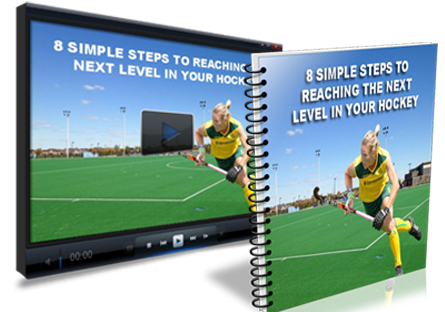
Let us know below where to send the free video & ebook
![]() We value your privacy and will never share your details
We value your privacy and will never share your details
